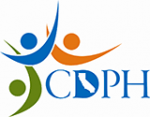Overview
Position Overview
The Illinois Department of Public Health is seeking a highly motivated, detailed orientated individual to independently or as a member of a professional team, travel to direct, coordinate and conduct Federal Certification, Inspection of Care and State Licensure surveys for Medicaid funded or Public Health licensed facilities for persons with Intellectual/Developmental Disabilities, in accordance with federal and state rules and regulations. Conducts Inspection of Care (IOC) surveys. Serves as a preceptor to new and lower-level staff in regards to training and orientation.
Job Responsibilities
Surveys long term care facilities to determine compliance with state licensure requirements, federal certification mandates, and Department directives, program policies and procedures.
Travels to independently or as a member of a professional team, to direct, coordinate and conduct the most difficult and complex Federal Certification, Inspection of Care and State Licensure surveys for Medicare funded and/or Public Health license facilities for persons with intellectual/developmental disabilities, in accordance with federal and state rules and regulations.
Conducts early morning and/or evening observations at facilities and/or travels to the office.
Conducts follow up monitoring visits at non-compliant facilities.
Collaborates with team members to prepare reports and document evidence.
Appears and testifies at Department and non-Department legal proceedings and administrative hearings.
Participate as a team member conducting the most difficult and complex Inspection of Care (IOC) surveys.
Ensures that the IOC review process, including completion of documentation, for facility conformance is completed per set protocols of the Department and in accordance with State rules and regulations.
Serves as a preceptor to new and lower level staff in regards to training and orientation.
Assists in the assessment and development of new survey staff by identifying training needs.
Recommends training programs.
Assists with the arrangement for field training.
Collects data/information and prepares reports accurately adhering to the Principles of Documentation.
Participates in standardization process by reviewing and evaluating certification and licensure reports of lower-level surveyors and staff for accuracy and compliance with protocols, guidelines and policies.
Attends staff meetings, professional meetings and online training or workshops as a means of maintaining expertise in the professional discipline area and in regards to pertinent federal and state survey rules, regulations and protocols.
Performs other duties as required or assigned within the scope of the responsibilities enumerated above.
About Illinois Department Public Health
In Illinois, if you have eaten at a restaurant ... required hospital or nursing home care ... vacationed at a campground or swam at a public beach or pool ... drank a glass of milk ... got married or divorced ... had a baby, the Illinois Department of Public Health (IDPH) has touched your life in some important way.
Assuring the quality of our food, setting the standards for hospital and nursing home care, checking the safety of recreation areas, overseeing the inspection of milk producing farms and processing plants, maintaining the state's vital records and screening newborns for genetic diseases are just some of the duties of IDPH.
In fact, IDPH has 200 different programs that benefit each state resident and visitor, although its daily activities of maintaining the public's health are rarely noticed unless a breakdown in the system occurs. With the assistance of local public health agencies, these essential programs and services make up Illinois' public health system, a system that forms a frontline defense against disease through preventive measures and education. Public health has provided the foundation for remarkable gains in saving lives and reducing suffering. Today, life expectancy is 80 years for women and 74 years for men compared with fewer than 50 years at the at the beginning of the 20th century.
In the past, IDPH directed state efforts to control smallpox, cholera and typhoid, virtually eliminated polio, reduced dental decay through fluoridation of community water supplies, and corrected sanitary conditions that threatened water and food supplies.
Today, IDPH has programs to deal with persistent problems that require continued vigilance – infectious diseases, such as AIDS (acquired immunodeficiency syndrome), HIV (human immunodeficiency virus), SARS (severe acute respiratory syndrome) and meningococcal disease; foodborne and communicable diseases, such as E. coli 0157: H7, monkeypox, salmonella and West Nile virus; vaccine preventable diseases; lead poisoning; lack of health care in rural areas; health disparities among racial groups, breast, cervical and prostate cancer; Alzheimer's disease; and other health threats -- sexually transmitted diseases, tobacco use, violence, and other conditions associated with high-risk behaviors. In addition, IDPH has been charged with handling the state's response to the COVID-19 pandemic and the threat of bioterrorism.
IDPH, which is one of the state's oldest agencies, was first organized in 1877 with a staff of three and a two-year budget of $5,000. IDPH, now has an annual budget of $2.9 billion in state and federal funds, headquarters in Springfield and Chicago, seven regional offices located around the state, three laboratories, and 1,200 employees.
IDPH is organized into 12 offices, each of which addresses a distinct area of public health. Each office operates and supports numerous ongoing programs and is prepared to respond to extraordinary situations as they arise.


